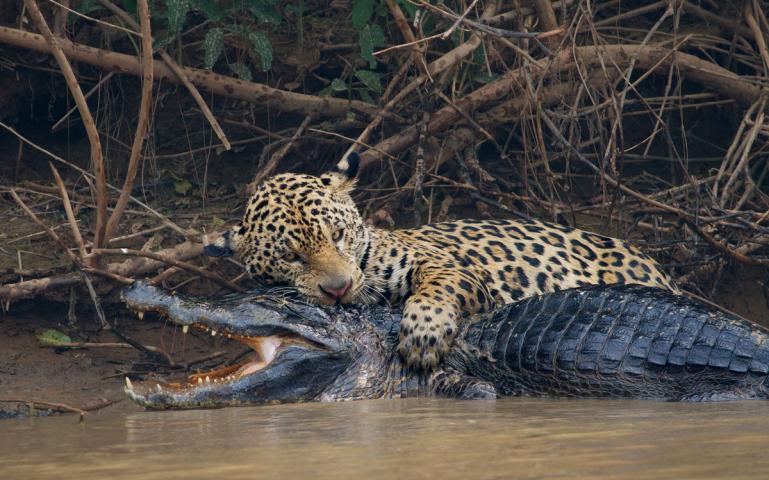Since its earliest days, TV has given us animals.
They were caged — “Zoo Parade” in 1950, the British “Zoo Express” in ’54 — then wild. Still, there’s never been anything like this surge.
In December, BBC America concluded “Dynasties.” On Monday, the National Geographic Channel launches “Hostile Planet” … four days before Netflix’s “Our Planet.”
Each is epic; each seems to build on the past. “I saw every wildlife program ever made, when I was a kid,” said Bear Grylls, the “Hostile Planet” host.
And each gets a high-tech boost
“Cameras have become miniscule,” said Mateo Willis, who won an Emmy as a “Planet Earth II” cinematographer. They’re “a quarter of the size and yet we end up taking more and more cases.” To shoot hummingbirds, he took 37 cases, ranging from high-speed cameras to drones.
Now he’s shot “Hostile Planet,” with stunning images. Its executive producer, Guillermo Navarro, won an Academy Award for shooting “Pan’s Labyrinth.”
Alongside the pretty pictures, this aims for new stories.
“We’ve all (done) classic wildlife series that celebrate the wonders of the Earth,” said producer Tom Hugh-Jones. “We wanted to do that, too, but we wanted to make something that would be more dramatic, more exciting.”
The first step? “We locked ourselves in a hotel in London for a week with Guillermo,” said producer Martha Holmes, “and looked at a lot of natural-history films” to see what was overused.
They decided to focus on extreme conditions. “Many of the stories are heartbreaking,” Grylls said.
And some aren’t, he said. “We’re seeing seals communicating to battle off sharks. We’re seeing polar bears learning to hunt whales. We’re seeing jaguars learning to hunt in the water for crocodiles. You’d think …, ‘That doesn’t really happen.’”
It does, apparently, amid our planet’s hostility.
— “Hostile Planet,” 9 p.m. ET Mondays, National Geographic, rerunning at 11:01 (6 amd 8:01 p.m. PT)
— Opener, April 1, views mountain life; it reruns at 9 p.m. ET Friday and 11 p.m. Sunday, then 8 p.m. April 8, before the second episode, viewing oceans.
